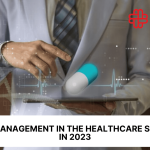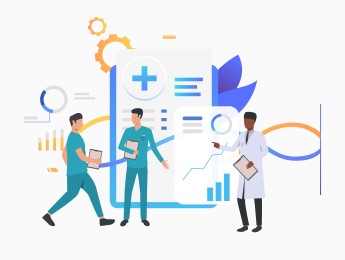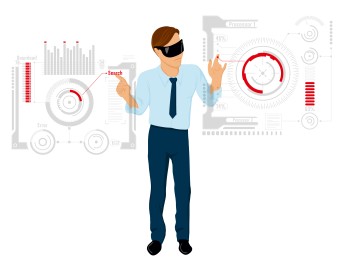Healthcare innovation management encompasses the systematic approach to identifying, fostering, and implementing novel solutions to address challenges within the healthcare sector.
It involves the strategic coordination of resources, including human capital, technology, and financial investments, to promote the development and adoption of innovative practices, processes, and technologies aimed at improving patient outcomes, enhancing operational efficiency, and reducing costs.
Effective healthcare innovation management requires a comprehensive understanding of the industry's regulatory landscape, market dynamics, and technological advancements. It involves cultivating a culture that encourages creativity, collaboration, and risk-taking while also prioritising patient safety and regulatory compliance.
You will need rigorous needs assessment, idea generation, feasibility analysis, pilot testing, implementation planning, and ongoing evaluation and iteration. By embracing a structured approach to innovation management, healthcare organisations can catalyse transformative changes that drive continuous improvement and sustainable growth in the delivery of healthcare services.
Upon completion of this course, participants will be able to:
- Gain insight into the evolving healthcare landscape, including healthcare systems and unique innovation requirements.
- Foster dialogue with diverse stakeholders from various business backgrounds and cultural perspectives within the healthcare sector.
- Exchange ideas to enrich your understanding of your business or organisation within the healthcare context.
- Recognise potential areas for innovation and transformation within healthcare institutions, internally and through collaboration with other organisations.
- Enhance capacity for innovative and entrepreneurial thinking by actively engaging with emerging challenges and opportunities in healthcare.
- Develop procedures distinct to healthcare innovation, separate from other industries.
This course is designed for anyone responsible for managing change within a healthcare setting and using data to predict future health trends to support the community. It would be most beneficial for:
- Doctors
- Surgeons
- Change & Control Managers
- Hospital Managers
- Healthcare Executives
- Practice Managers
- Med-Tech Consultants
- Pharmacy Managers
- Health Insurers
- Risk Assessors
- Auditors
- Healthcare Project Managers
This course uses a variety of adult learning styles to aid full understanding and comprehension. Participants will view videos surrounding the healthcare setting's current societal and financial issues. They will review presentations and see real-world case studies to understand initiatives in the healthcare setting that have been both successful and unsuccessful and discuss the reasons why.
They will participate in trainer-led discussions, look at real-world data to understand the potential future of healthcare and conduct group exercises to discover the solutions to some of the industry’s most pressing problems.
Day 5 of each course is reserved for a Q&A session, which may occur off-site. For 10-day courses, this also applies to day 10
Section 1: The Changing World of Healthcare
- Emerging trends in healthcare technology.
- Healthcare policy and regulatory changes.
- Innovations in patient care and treatment modalities.
- The role of artificial intelligence in healthcare.
- Global health challenges and responses.
- Healthcare economics and financing strategies.
Section 2: The Realities of Future Healthcare Demands
- Population health management strategies.
- Healthcare workforce planning and development.
- Addressing disparities in healthcare access and outcomes.
- Integrating digital health solutions into traditional healthcare systems.
- Sustainable healthcare practices and environmental impacts.
- Anticipating and adapting to changing demographic trends.
Section 3: Technology & Healthcare Development
- Data analytics and its role in improving healthcare outcomes.
- Telemedicine and remote patient monitoring.
- Wearable health technology and its applications.
- Cybersecurity considerations in healthcare IT.
- Ethics and regulations in healthcare technology development.
Section 4: Hospitals & Their Financial State
- Understanding hospital financial management principles.
- Analysis of hospital revenue streams and expenditure patterns.
- Budgeting and financial forecasting in hospital settings.
- Strategies for improving hospital financial performance.
- Healthcare reimbursement systems and their impact on hospital finances.
- Financial risk management in hospital operations.
Section 5: Corporate Ventures in Healthcare
- Exploring corporate investment strategies in the healthcare sector.
- Analysis of mergers, acquisitions, and partnerships in healthcare.
- Evaluating the role of venture capital in funding healthcare startups.
- Corporate entrepreneurship and innovation within healthcare organisations.
- Legal and regulatory considerations in corporate ventures in healthcare.
- Case studies of successful and unsuccessful corporate ventures in healthcare.
Section 6: Managing the Future of the Healthcare Environment
- Adapting healthcare delivery models to meet future demands.
- Strategic planning for healthcare organisations in a changing landscape.
- Leadership in healthcare: navigating complexity and uncertainty.
- Leveraging technology for improved healthcare outcomes.
- Addressing societal and demographic shifts in healthcare provision.
- Sustainability and resilience in healthcare systems.
Upon successful completion of this training course, delegates will be awarded a Holistique Training Certificate of Completion. For those who attend and complete the online training course, a Holistique Training e-Certificate will be provided.
Holistique Training Certificates are accredited by the British Assessment Council (BAC) and The CPD Certification Service (CPD), and are certified under ISO 9001, ISO 21001, and ISO 29993 standards.
CPD credits for this course are granted by our Certificates and will be reflected on the Holistique Training Certificate of Completion. In accordance with the standards of The CPD Certification Service, one CPD credit is awarded per hour of course attendance. A maximum of 50 CPD credits can be claimed for any single course we currently offer.
- Course Code PO2-117
- Course Format Classroom, Online,
- Duration 5 days














